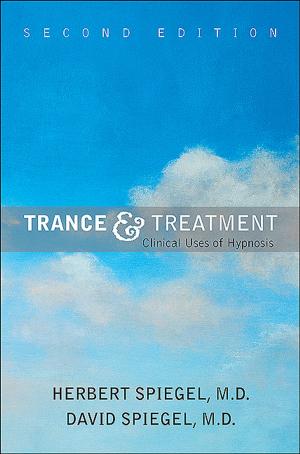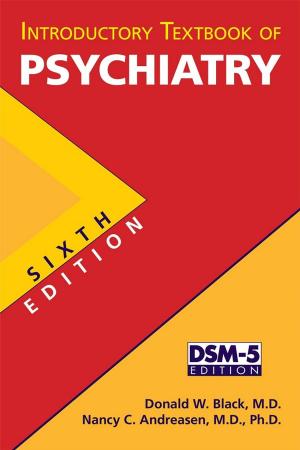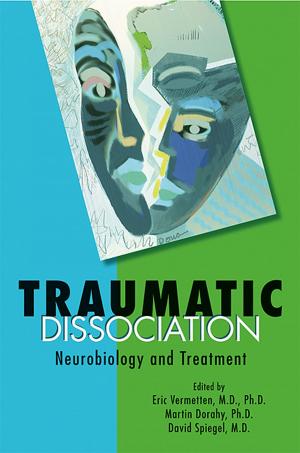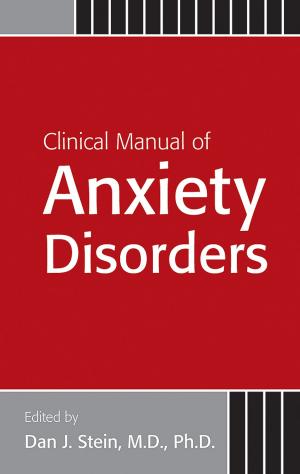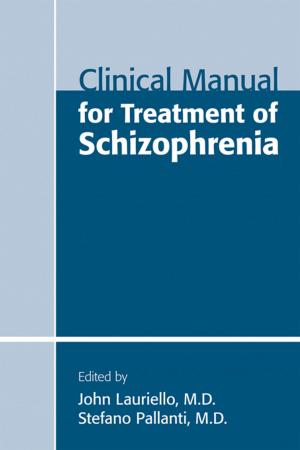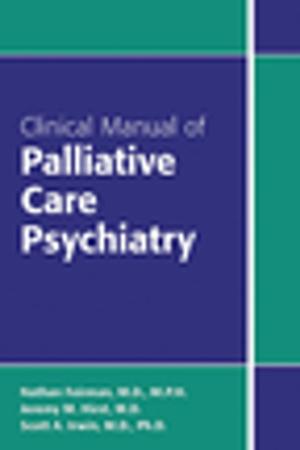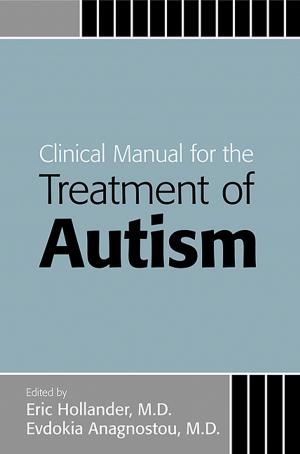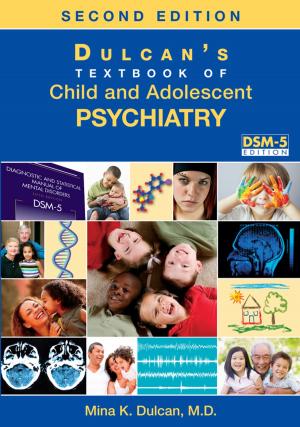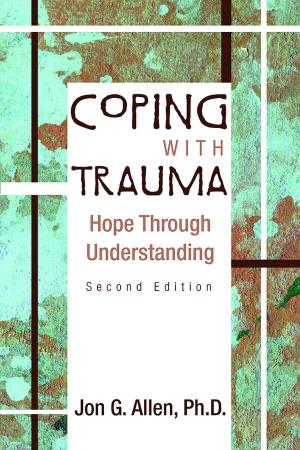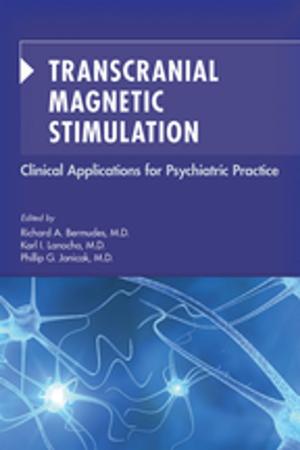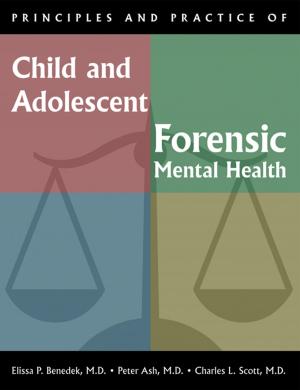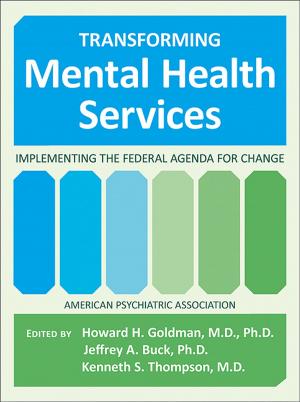Clinical Manual of Child and Adolescent Psychopharmacology
Nonfiction, Health & Well Being, Psychology, Psychiatry, Medical, Specialties| Author: | ISBN: | 9781615371266 | |
| Publisher: | American Psychiatric Publishing | Publication: | March 15, 2017 |
| Imprint: | American Psychiatric Association Publishing | Language: | English |
| Author: | |
| ISBN: | 9781615371266 |
| Publisher: | American Psychiatric Publishing |
| Publication: | March 15, 2017 |
| Imprint: | American Psychiatric Association Publishing |
| Language: | English |
The new, third edition of the Clinical Manual of Child and Adolescent Psychopharmacology has been thoroughly revised, yet its mission remains the same: to keep clinicians up-to-date on the latest research so that they can provide state-of-the-art care to their young patients. To this end, the book describes and explores those elements that are specific to pediatric psychopharmacology; this defines and positions the volume at the nexus of child and adolescent psychiatry, pediatrics, and pharmacology. A stellar roster of contributors addresses new treatments for youths with disruptive behavior disorders, mood disorders, anxiety disorders, pervasive developmental disorders, and psychotic illnesses and tackles some of the most important emerging issues in the field. For example, advances in understanding the long-term treatment effects of medications in pediatric populations are thoroughly reviewed, including not only maintenance studies that consider the durability of efficacy but also clinical trials of greater duration designed to specifically evaluate long-term safety. In addition, recent studies of combination therapies are examined, helping clinicians better understand how to treat the complicated patients that arrive every day at a prescribing clinician's office. Finally, because research designs now include a broader base of patient populations to make the data more applicable to everyday clinical practice, the book focuses on head-to-head studies with multiple active comparators.
The book offers clinicians comprehensive, accessible information and boasts a multitude of helpful features: The book is organized by diagnosis instead of agent class. This makes it a true clinical desktop reference that allows clinicians to quickly and efficiently search treatment options and the evidence base on a case-by-case basis. DSM-5 criteria and information on comorbidities are also included. The American Academy of Child and Adolescent Psychiatry Practice Parameters are integrated into the discussion, where applicable, in support of standard of care. The book has been updated to include the latest research at the time of publication. A new chapter has been added to address eating disorders, an area where psychopharmacological research that may apply to children and adolescents is now being pursued. Useful features to help the reader understand and retain the material include clinical summary points, easy to read tables, and current and carefully vetted references.
The Clinical Manual of Child and Adolescent Psychopharmacology, Third Edition, is an indispensable guide to the substantive research that has been done in nearly every area of pediatric psychopharmacology, as well as the major improvements that have been made to the evidence-based practice of treating youths with psychiatric illness.
The new, third edition of the Clinical Manual of Child and Adolescent Psychopharmacology has been thoroughly revised, yet its mission remains the same: to keep clinicians up-to-date on the latest research so that they can provide state-of-the-art care to their young patients. To this end, the book describes and explores those elements that are specific to pediatric psychopharmacology; this defines and positions the volume at the nexus of child and adolescent psychiatry, pediatrics, and pharmacology. A stellar roster of contributors addresses new treatments for youths with disruptive behavior disorders, mood disorders, anxiety disorders, pervasive developmental disorders, and psychotic illnesses and tackles some of the most important emerging issues in the field. For example, advances in understanding the long-term treatment effects of medications in pediatric populations are thoroughly reviewed, including not only maintenance studies that consider the durability of efficacy but also clinical trials of greater duration designed to specifically evaluate long-term safety. In addition, recent studies of combination therapies are examined, helping clinicians better understand how to treat the complicated patients that arrive every day at a prescribing clinician's office. Finally, because research designs now include a broader base of patient populations to make the data more applicable to everyday clinical practice, the book focuses on head-to-head studies with multiple active comparators.
The book offers clinicians comprehensive, accessible information and boasts a multitude of helpful features: The book is organized by diagnosis instead of agent class. This makes it a true clinical desktop reference that allows clinicians to quickly and efficiently search treatment options and the evidence base on a case-by-case basis. DSM-5 criteria and information on comorbidities are also included. The American Academy of Child and Adolescent Psychiatry Practice Parameters are integrated into the discussion, where applicable, in support of standard of care. The book has been updated to include the latest research at the time of publication. A new chapter has been added to address eating disorders, an area where psychopharmacological research that may apply to children and adolescents is now being pursued. Useful features to help the reader understand and retain the material include clinical summary points, easy to read tables, and current and carefully vetted references.
The Clinical Manual of Child and Adolescent Psychopharmacology, Third Edition, is an indispensable guide to the substantive research that has been done in nearly every area of pediatric psychopharmacology, as well as the major improvements that have been made to the evidence-based practice of treating youths with psychiatric illness.

